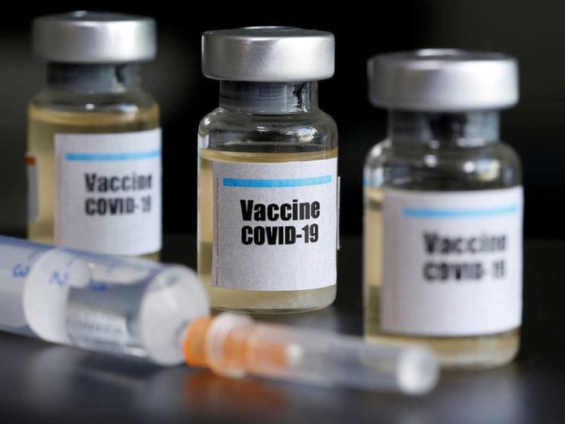“The oldest and the strongest emotion of mankind is fear and the oldest and strongest kind of fear is fear of the unknown” (H.P LOVECRAFT)
The above sums up the atmosphere in Ghana before the arrival of the COVAX–sponsored AstraZeneca COVID–19 vaccines. The much-anticipated vaccines were welcomed, on 24 February 2021, amidst mixed feelings.
Social media platforms were rife with excitement, speculations and fear-mongering alike among Ghanaian users.
Concerns about the safety and efficacy of the vaccines persist despite the assurances of President Akufo–Addo and campaigns by medical professionals across the country to debunk conspiracy theories surrounding the vaccines.
Whiles the SARS-CoV-2 virus which caused the Covid-19 pandemic may be novel, conspiracy theories surrounding the virus are not. Indeed, the earlier months of the pandemic were dominated by speculation about the origins of the virus.
Rumours that bat consumption caused the virus led to a spike in Sinophobic attacks in the United States and several European countries.
The proliferation of misinformation did not abate and with time the enduring myth of the pandemic developed - the claim that Covid-19 is linked to 5G.
This claim was ushered into mainstream discourse via social media by celebrities such as Amir Khan and Woody Harrelson.
It is therefore imperative that the efforts to encourage vaccination are well executed.
In West Africa, this conspiracy theory was peddled by the renowned preacher, Pastor Chris Oyakhilome who dedicated sermons to propagating the myth.
Extant research has debunked any connection between 5G frequencies and the virus and has shown, contrariwise, that 5G may be instrumental in the fight against the virus.
Nonetheless, a deficit of merit has unfortunately not been any impediment to the propagation of these conspiracy theories which have spurred attacks on cell towers and telecommunications engineers, especially in the Western world.
The introduction of vaccines late last year was met with more speculation.
There were claims that the vaccine would alter the DNA of recipients or even infect them with the virus itself and a revised version of the 5G theory claimed that the vaccines contained a microchip, sponsored by Bill Gates and linked to cell towers via 5G technologies as a means of population surveillance.
The result of these conspiracy theories is a high rate of vaccine scepticism.
In Wisconsin for instance, a pharmacist purposely sabotaged 57 vials over the holidays because he thought the vaccine would change people’s DNA.
In Ghana, vaccine scepticism is mainly linked to a belief that the COVAX facility is a trial version and Ghanaians are going to be used as guinea pigs.
These reservations are not wholly unfounded as there exists a precedent for unlawful trials in the sub-region in the 1996 Kano trovafloxacin trial which caused 5 deaths and several injuries which Pfizer finally settled out-of-court for USD 75 million in 2009.
Ironically, some Ghanaians are sceptical of the AstraZeneca vaccines as they have not been approved in the United States which opted for the Pfizer and Moderna vaccines.
These concerns have produced a suboptimal vaccination rate with only 0.11 vaccines administered per 100 people since vaccination started on 3rd March.
A lot has to be done to convince the citizens to patronize the vaccination, thus, live broadcast of the vaccinations of the president, politicians and some religious figures is a welcome step.
These efforts could be further strengthened by a concerted government effort, through the National Commission for Civic Education (NCCE), to address misinformation concerning the vaccines via new and traditional media thus ensuring that correct information on the side effects and other relevant information about the vaccine permeate all spheres of Ghanaian society.
Further, influential persons who have taken the first dose of the vaccine should be encouraged to share their experience after taking the vaccine through videos and voice notes on Social Media platforms thereby reclaiming an avenue through which misinformation on the vaccines is spread.
Additionally, large social media platforms should be persuaded to rapidly take down accounts that amplify fake news on their sites to check the spread of misinformation.
The government may explore legislation that imposes fines on influential people who create fake news regarding the vaccine or amplify existing conspiracy theories.
****
The author, Rockson Obeng is a student at Simon Fraser University, Canada
Latest Stories
-
Strained resources in health centres worsening mental health treatment and management
6 minutes -
Building Contractors rally behind National Apprenticeship Programme, call for stronger collaboration
13 minutes -
Tariq Lamptey set to be a free agent as Brighton contract nears expiration
14 minutes -
Supreme Court dismisses CenCES case against Chief Justice’s suspension by 4–1 majority decision
14 minutes -
Former US NFL player Isaiah Stanback in Ghana, exploring possibility of a sports academy
21 minutes -
You can go to court 200 times, I don’t care – Agradaa reacts to Empress Gifty’s lawsuit
30 minutes -
Missing AFCON 2025 was a disaster for Ghana – Black Stars Technical Advisor Winfried Schäfer
31 minutes -
Cedi performance: Mahama rules but Bawumia’s ideas reign – Gideon Boako
31 minutes -
Lands Commission welcomes new Deputy Executive Secretary in Charge of Operations
32 minutes -
Six Ukrainian soldiers killed in Russian strike on training exercise
39 minutes -
Three traders arrested for resisting decongestion exercise at Kwame Nkrumah Circle
40 minutes -
AGLOTLED launches “1 Child, 1 Book a Week” initiative to promote reading among pupils
53 minutes -
Ajuma shares powerful message with debut single ‘Suro Nipa’
56 minutes -
Decongestion Exercise Day 2: AMA clears illegal structures at Circle Neoplan
1 hour -
Buipe: Prez Mahama revamps PBC Shea Factory to actualise 24-Hour Economy Policy
1 hour

